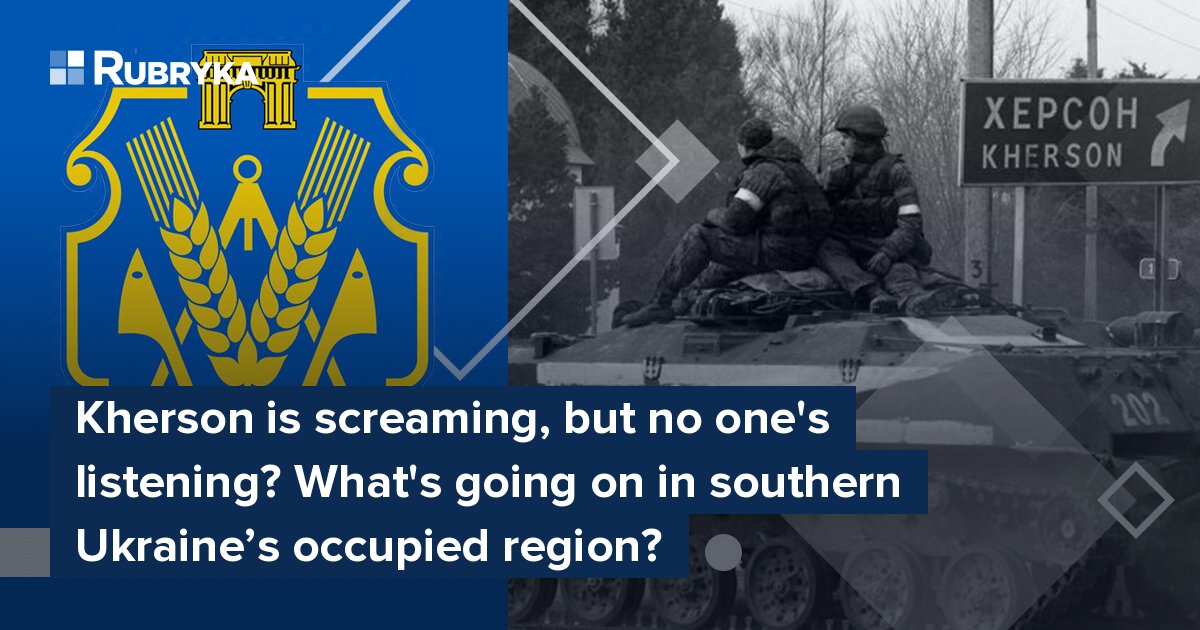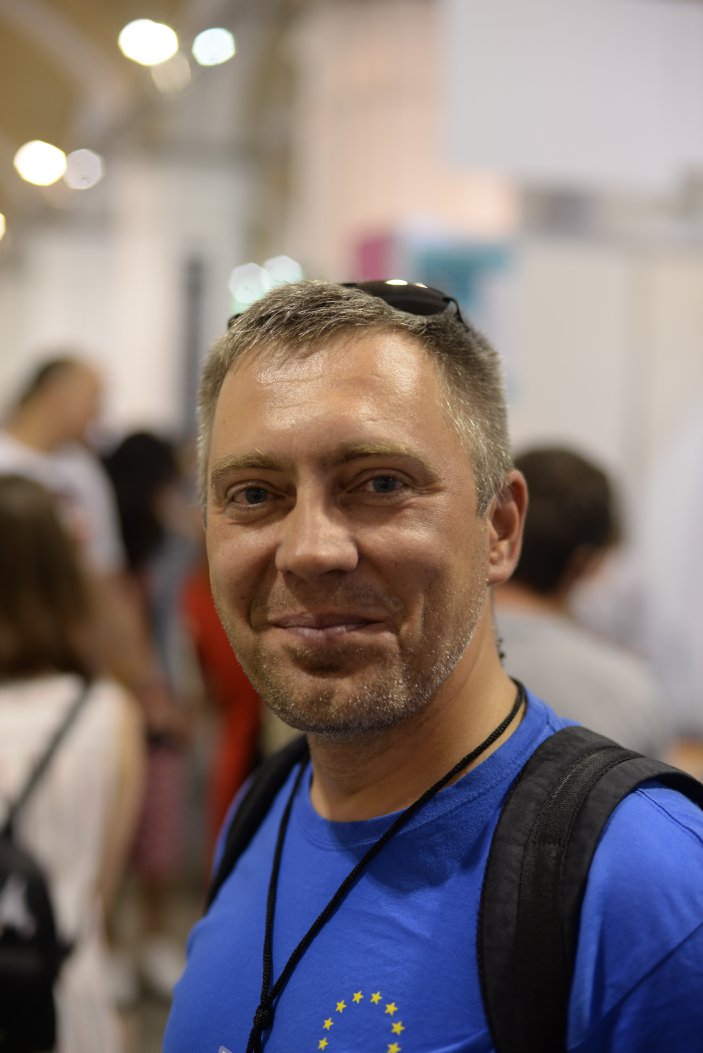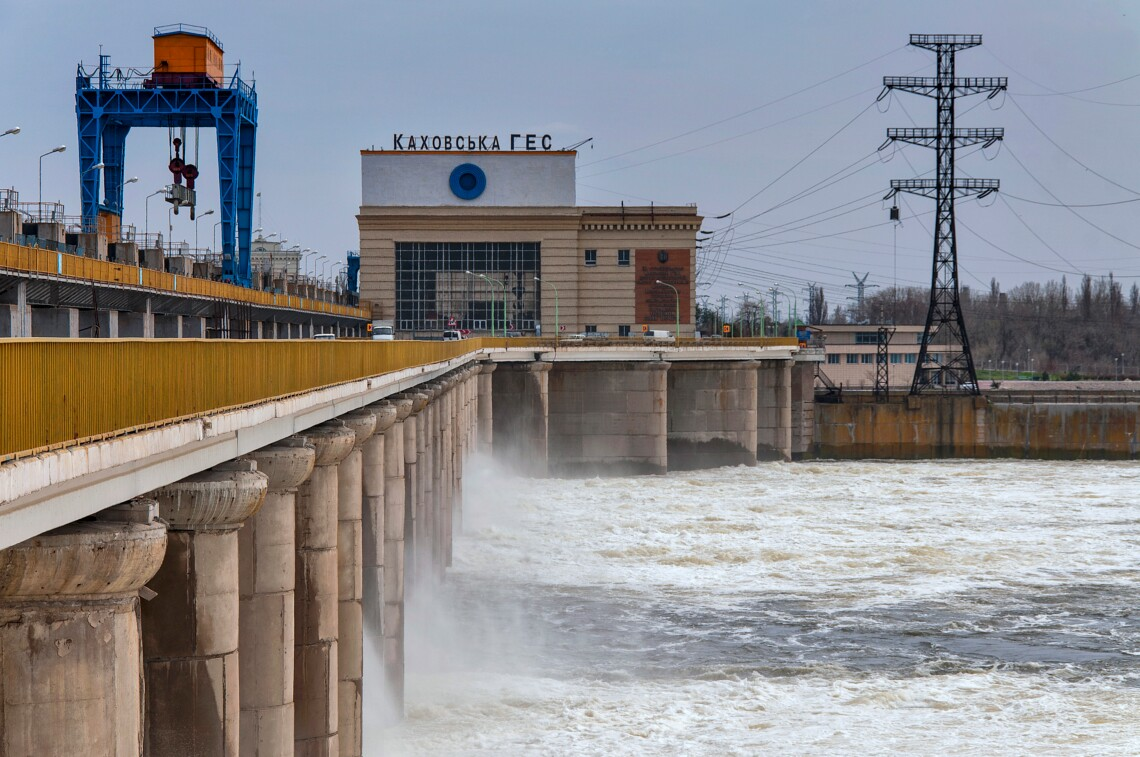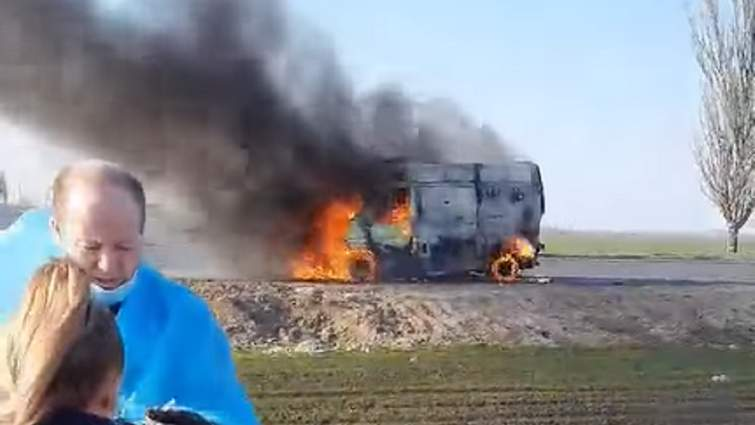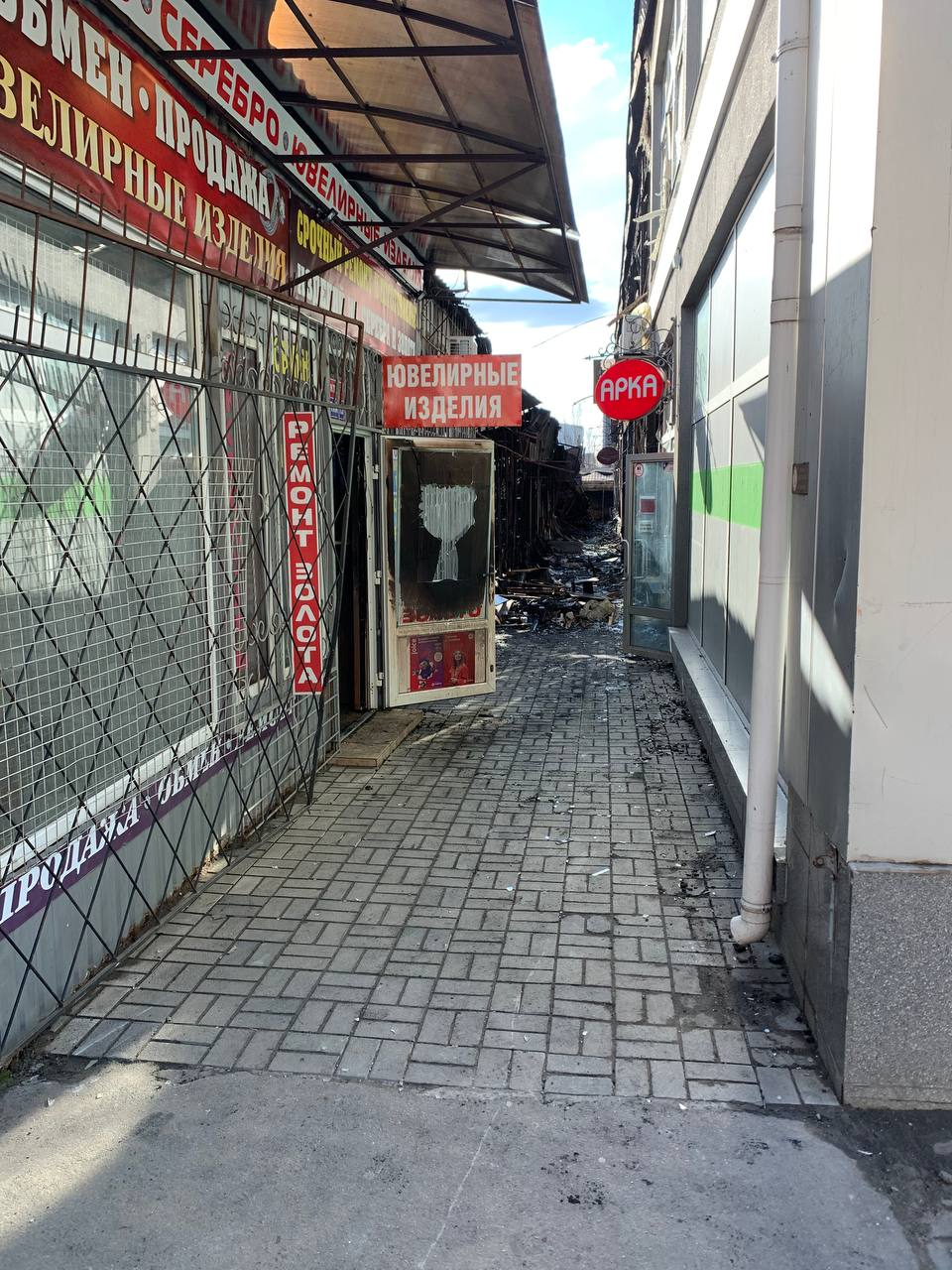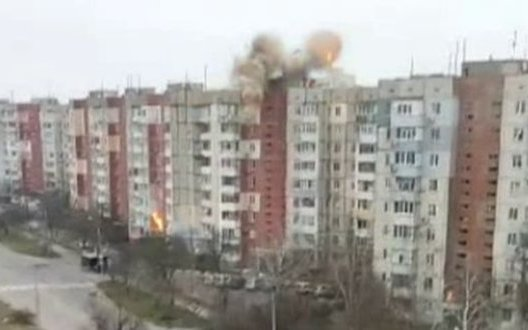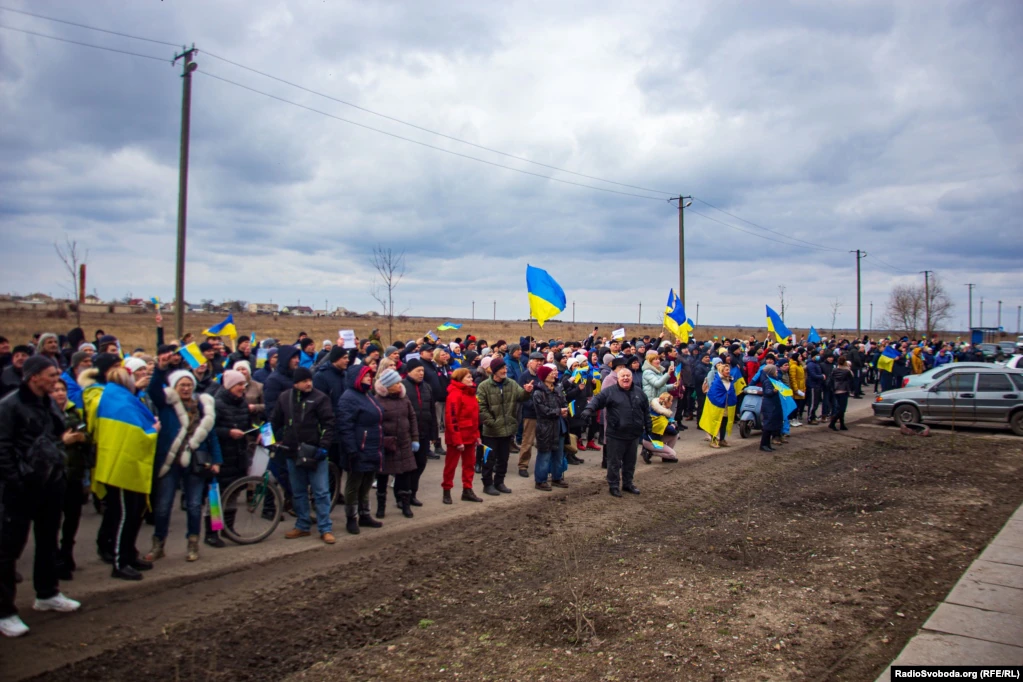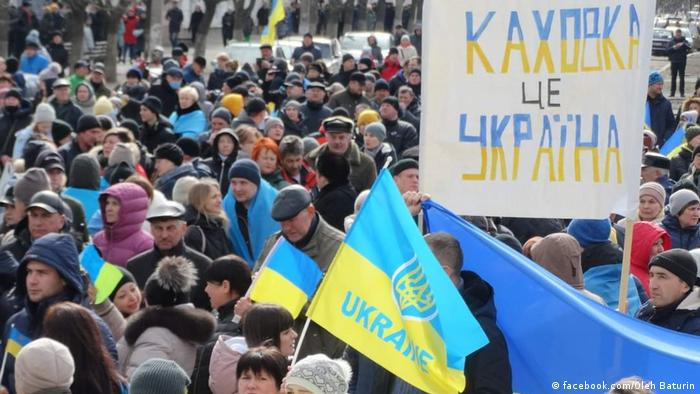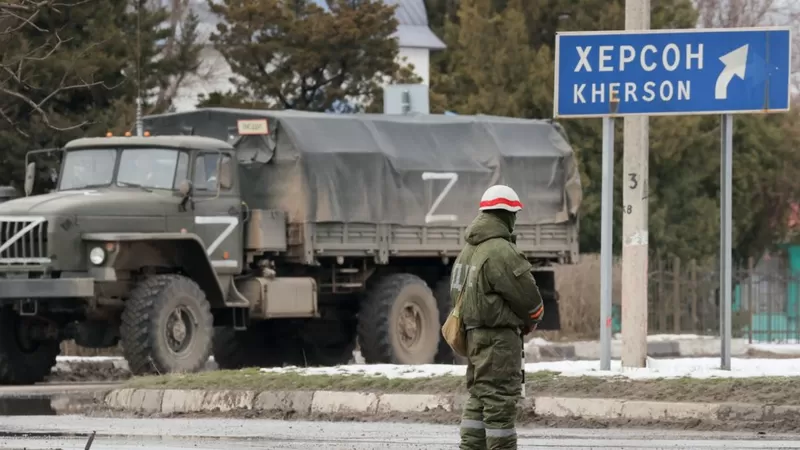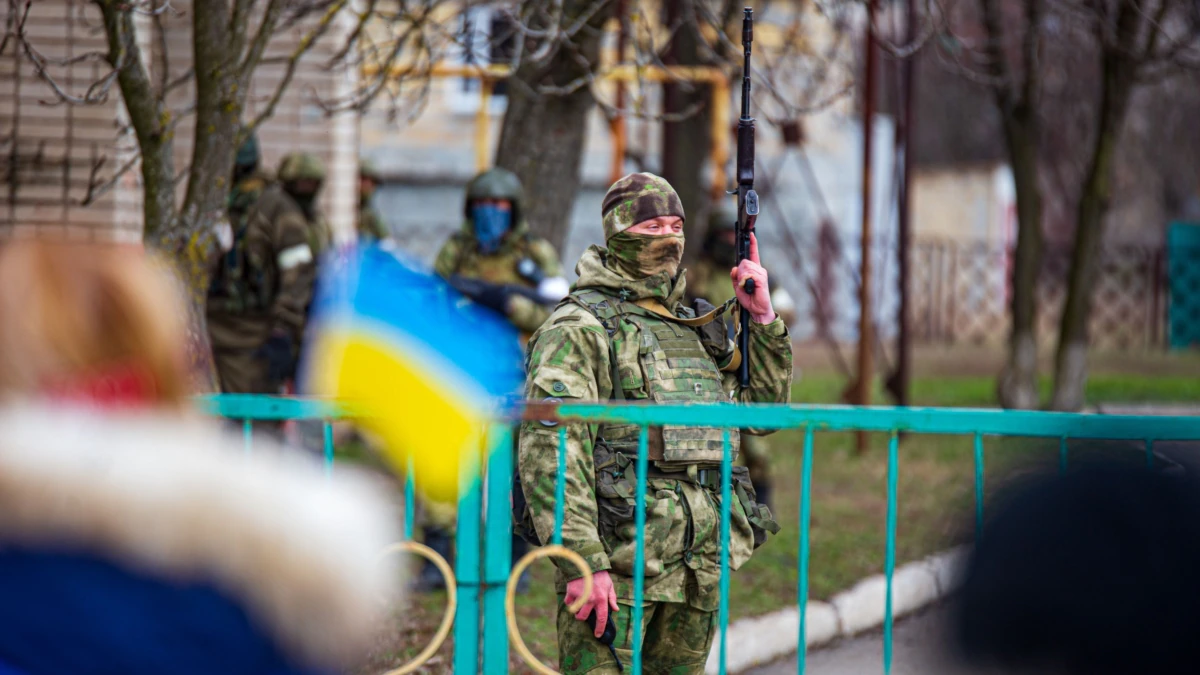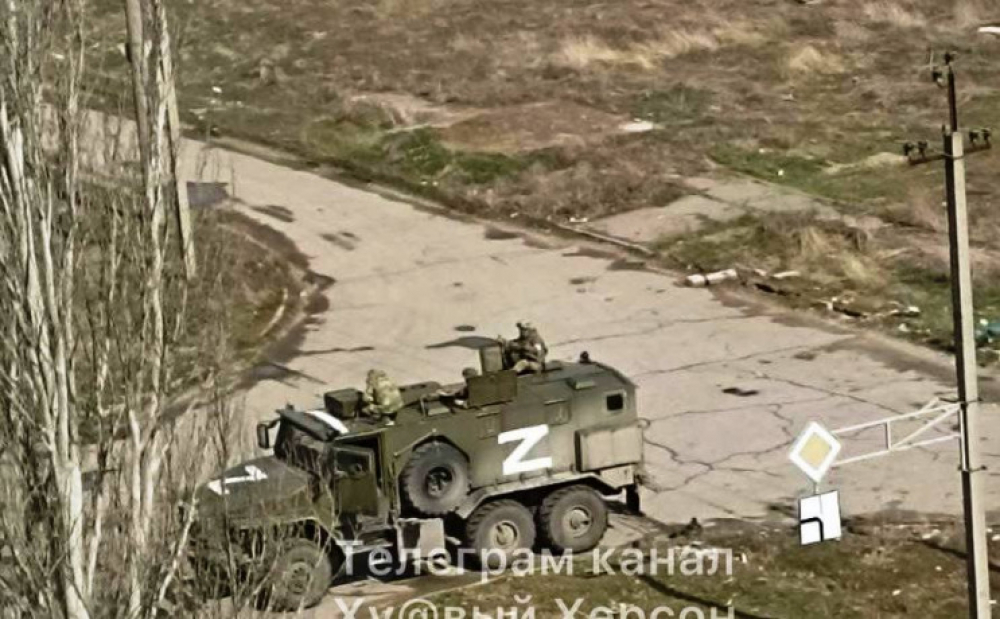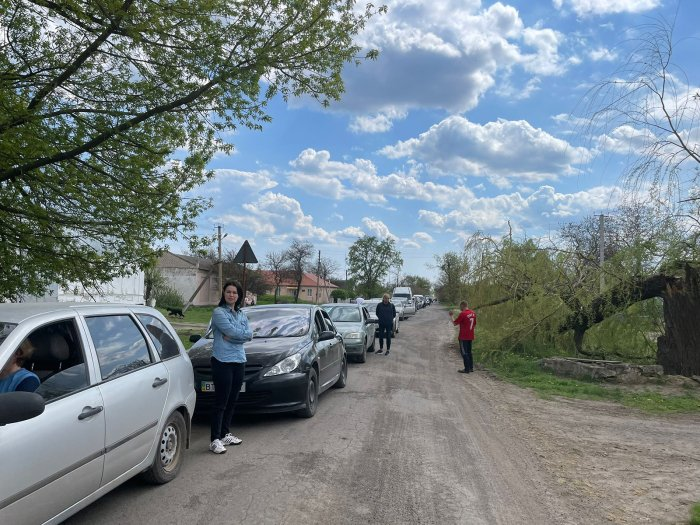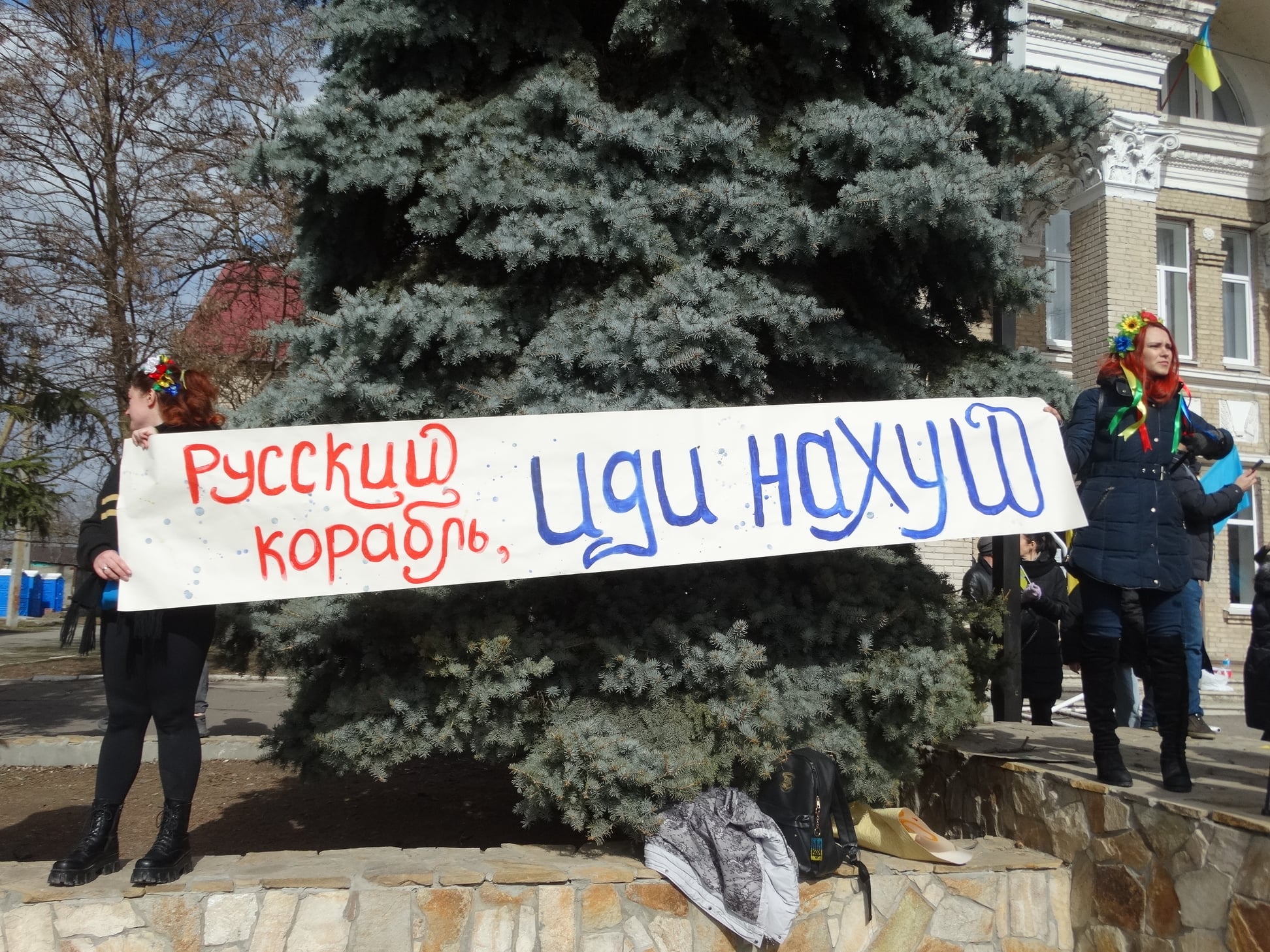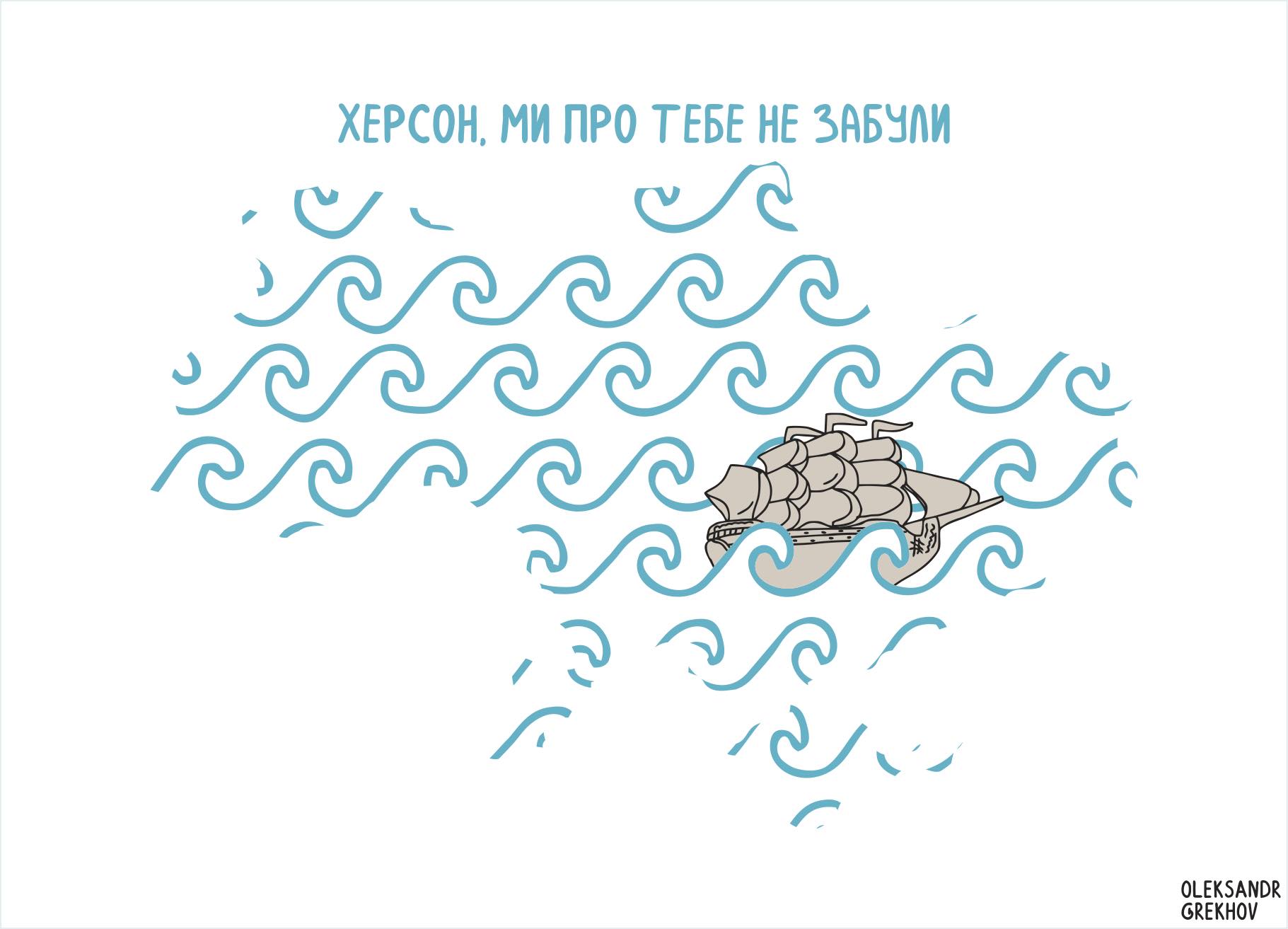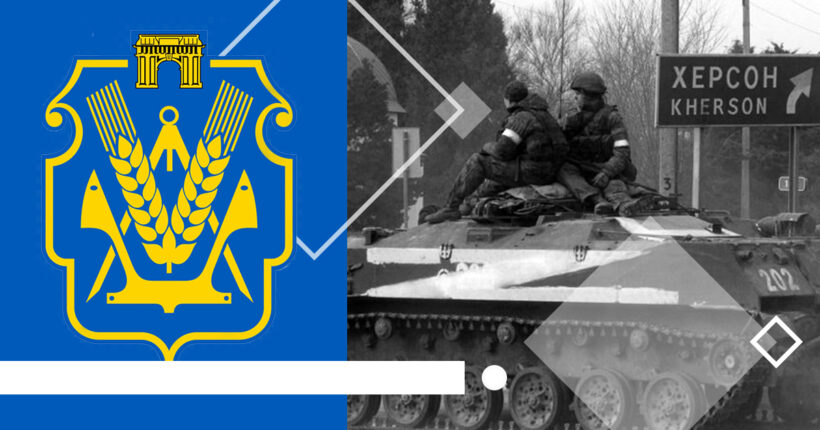
Kherson is the only city of regional significance occupied by russia's troops since the beginning of March. "Quiet occupation" and "silent terror" are the collocations used to describe the events happening in the Kherson region. Locals are strongly opposed to such epithets. They're saying that hundreds of civilians died in the region due to multiple shellings. The Ukrainian Armed Forces and territorial defense have been fighting for every inch of Ukrainian territory, but rascists continue to kidnap people and torture them in prisons for activism and volunteering.
Residents of the region have repeatedly been gathering in pro-Ukrainian rallies to show the occupiers that the Kherson region is Ukraine! Even though now such demonstrations have abated, the residents believe in the Armed Forces of Ukraine and are hoping for de-occupation. They are not going to make peace with the local russia-installed administration.
"Rubryka" talked to the occupation witnesses and a journalist who escaped captivity of the invaders about the methods used by russians to intimidate the locals and about what's happening in the region now.
There has always been a threat emanating from the territory of Crimea
After Crimea was annexed, the ties between the residents of the peninsula and the residents of the Kherson region became less active, but they haven't ceased entirely. Crimeans have been visiting their relatives in Kherson, doing their Ukrainian paperwork, and addressing legal issues, and young people have been applying for Ukrainian universities.
The journalist of the Kakhovka-based media outlet "Novyy den'" Oleh Baturyn has worked a lot on the topics of occupied Crimea, including the human rights violations and accumulation of forces in the territory of the peninsula.
"It was obvious that Crimea presented a great danger to Ukraine's mainland. And it concerned the Kherson region in the first place. In addition, the North Crimean Canal situated in the Kherson region was crucial for russians to provide water for Crimea. All of this caused great concern. The government's actions, such as the appointments of heads of district administrations and regional administration, were of an even bigger concern. Not in all regions, but a liberal share of these appointments raised many questions", – says Oleh Baturyn.
He notes that a lot of attention was given to the issue of creating a checkpoint between the occupied Crimea and Kherson.
"This created misunderstanding in the Kherson region. The checkpoint issue had no direct connection to the region's life, which means that people were a lot more interested in other issues: road maintenance, employment, health care, etc. Many people, me included, didn't understand why the Crimea security issue wasn't on the agenda," – says Oleh Baturyn.
In contrast with russian propaganda which continues saying that the residents of the Kherson region have dreamt of Kherson being a part of russia, many people vigorously oppose such a course of events. However, there have been some people who were pro-russian.
"There definitely wasn't a majority of such people. Many of those, who we call "half-vatnyky (in Ukraine people who support russia's invasion of Ukraine are called "vatnyky")," have been nostalgic about the Soviet Union, relatives in russia, etc. But the thing is: since the first days of the full-scale russia's invasion of Ukraine, these "half-vatnyks" stopped being "half." Multiple people from my friends' and my circle took a strong anti-russia position. Especially after the evidence of the shootings in Kakhovska HGS, of people kidnapping at checkpoints, of the complete village destructions in Kherson region were disclosed", – stresses Oleh Baturyn.
"The occupation wasn't bloodless"
Residents of the Kherson region woke up at about five in the morning from loud explosions.
"Nobody really understood anything, but life in the city proceeded. The City Council had to meet in the morning, shops opened, and people went to work, but everyone was anxious. It was officially announced at 9 am. It turned out that the explosions we heard were russians destroying the infrastructure of the military base near Nova Kakhovka," Oleh Baturin recalls.
Information about long columns of russian equipment transiting through the settlements of Kalanchak, Henichesk, Chaplinka, and others quickly spread on social networks. Sometime between 11 and 12 on February 24, the russian invaders took control of the Kakhovka hydroelectric power plant, which is a significant part of the water supply to the occupied Crimea.
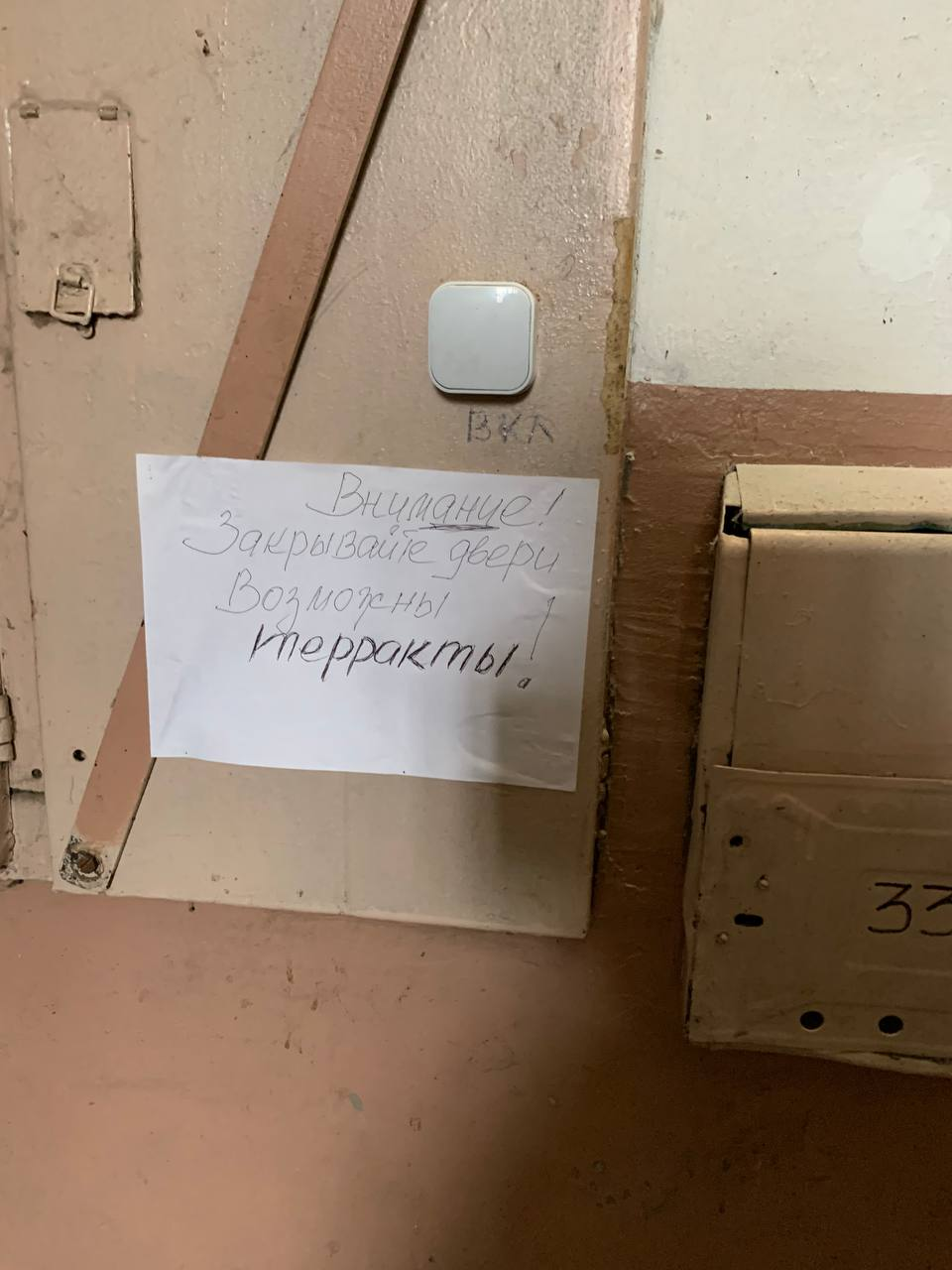
Writing on the wall in one of Kherson's houses / Picture: provided by "Rubryka's" interlocutor Yevhen
The occupation of the Kherson region is often called "quiet" even though it was by no means quiet. There were fierce battles near the Kakhovka HPP for several days that later shifted to Kherson. The Ukrainian army tried to prevent the russians from breaking through the Antonov Bridge. Subsequently, the Armed Forces had to retreat.
"I was in Kakhovka all the time because our city, like the entire Left Bank, was blocked by the russians. It was impossible to leave. The russians set up checkpoints there and did not let anyone through. It was impossible to pass through Kakhovka HPP. They shot everyone who tried," says Oleh Baturin.
Patrol policeman Oleh Fedko's family was one of the first victims of such a shooting. His parents, wife, and two children were killed while driving across the dam. Adults died on the spot, and children died in the hospital. On the same day, russians shelled the emergency service car of the city water supplier in Nova Kakhovka. Its driver died.
On March 1, the russians occupied Kherson.
The interlocutor of "Rubryka" Yevhen was in Kherson during the occupation. As part of the volunteer community, he sought out the necessary medicine for vulnerable groups and delivered them. On March 1, his coordinator advised him and other volunteers not to go outside.
We heard machine guns and shots. At that time, the occupiers fired from tanks at several residential buildings in Tavriya and Dnipro districts. The situation was tense. The occupation was not bloodless. Multiple people died that day, and many cars were shelled," Yevhen said.
Also, other civilian objects were bombarded in Kherson, such as the shopping center "Fabryka" and school №24.
Kherson resident Yulia was forced to move from her apartment to her parents with her one-year-old son. But later, it became dangerous there as well.
"After the occupation, there was a week when I went to bed, hugged my son, and prayed that nothing would hit our house. I was so scared of the evening because at ten horrible explosions began. I have never heard or felt such fear anywhere else," Yulia recalls.
The exact number of dead and injured in the Kherson region is unknown, as local authorities cannot exercise their powers. On March 2, the Kherson City Council officially announced that about 40 people had died in the city. As of May 15, the number of affected children in the region is 48.
Protested despite everything
Despite the danger, Kherson residents decided to fight the occupation. On March 4, the first pro-Ukrainian rally took place in the city.
"It was a day when, according to rumors, the russians were to film a staged rally, calling for the creation of the KNR (the Kherson People's Republic) or the annexation of the Kherson region to russia. Nobody knew for sure what had to happen there, but people saw the buses supposedly from Crimea. Rumor had it that people were purposely brought there and settled somewhere. Everyone saw this as a threat from the occupiers," remembers volunteer Yevhen.
The same day, for the first time, there was no reception in the city for several hours, but people still could coordinate and go to the rally. The next day even bigger rally took place.
The russian military tried to intimidate people and fired into the air, but it did not work. Rallies became permanent. Every day people gathered on Svobody Square and walked to the Park Slavy.
Later subdivisions of the rosguard and the riot police replaced the russian military. They are specialists in counteracting peaceful assemblies. For almost all of March, the rallies were massive. But at the end of the month, they began to be violently dispersed. The participants of the meetings got kidnapped, and the fate of some of them is still unknown," says Yevhen.
A wave of protests swept through other cities in the region — rallies occurred in Genichesk, Skadovsk, and Melitopol. As a journalist, Oleh Baturin personally covered pro-Ukrainian meetings in Kakhovka and Nova Kakhovka.
"In my opinion, there were more people in the rally in Kakhovka than on the Day of the City. At a rally in Nova Kakhovka, people managed the impossible – they broke into the military-occupied city hall. People waved Ukrainian flags and were not even afraid to communicate with the russian military. hey were saying in their faces everything they thought. And those were not activists, but common people," the journalist said.
He also recalls how a resident of Nova Kakhovka pulled out his speakers in the street and turned on Ukrainian patriotic songs at the highest volume.
"He was tracked, seized, and sent to the basement. That was probably the first described case when a person was captured and sent to the basement," Oleh Baturin recalls.
People get kidnapped and sent to the torture chamber
Activists, volunteers, journalists, territorial defense, local authorities, and law enforcement officers in the Kherson region are under threat. The occupiers are looking for them, conducting searches in their homes, taking them to detention centers, and torturing them.
The russians captured Oleh Baturin, and he spent almost eight days in captivity.
"On March 12, my acquaintance called me and offered to meet. He said it was a personal conversation. I did not suspect anything because he was very calm. At that time, I did not know that he had already got kidnapped," Oleh recalls.
He refused because he needed to save gasoline. Later, his acquaintance called again and said he would come to him. He offered to meet at the bus station in Kakhovka.
"I went to the bus station without taking anything with me. I warned at home that I would be gone for 20 minutes. If I didn't come back or get in touch, that would mean I was in trouble. He was not at the bus station, but there was a white civilian minivan. I turned around and left. The door opened immediately, and a crowd ran towards me – it was the russian military," the journalist said.
They beat him in the street, trying to verify his identity, but Oleh did not give them his real name. They handcuffed him, put a hood over his head, and shoved him into a minivan.
He was pressed to the floor and beaten.
Oleh spent his first day in captivity in Nova Kakhovka. He was beaten with machine guns and kicked in the back, ribs, and legs. They asked whether he knew the organizers of pro-Ukrainian rallies, who were in charge of Telegram channels in the region, whether he cooperated with the Security Service of Ukraine (SBU) and the Armed Forces, whether he covered the protests in Belarus in 2020, and whether there were Belarusian activists in the Kherson region.
Later he was transferred to Kherson to a temporary detention center where he heard other people getting tortured.
"Most of them were ATO veterans. They were tortured, beaten, and interrogated for a very long time. There were also foreigners. A Spanish volunteer who spoke only Spanish. There was a very ill citizen of the Netherlands, and I didn't even know why he got there," says Oleh.
According to his recollections, people were beaten, their heads against the walls or furniture, and thrown to the floor. They were shouting, and all the other prisoners heard it.
"I also consider it a form of torture, but not physical. russians humiliated people, and we heard it all. They dragged some people into the back room. The torture happened in the morning and the evening. After they finished their interrogations, they checked all the cells. They looked into the window and asked whether everything was okay, and it was necessary to answer right away that everything was fine. I remember that there were a few times when people didn't respond in time or answered something wrong. For example, one man questioned how everything could be fine. They opened the door and started there…" recalls the journalist.
Yulia's relative, a member of territorial defense and a volunteer, was also taken prisoner. Later, the Ukrainian authorities were able to exchange him.
occupiers fear "Diia"
The Kherson region now lives in an atmosphere of absolute horror. russia's invaders can check photos and correspondence on the residents' phones right in the streets.
"Their presence has significantly increased, there are many checkpoints, they check public transport, minibusses, and cars. When I was in the city, I was told that they stopped the whole trolleybus, and checked the phones. Whoever had "Diia" [Ukrainian public services app – Ed.], was demanded to delete it. We joked that maybe it was because of the game "eBayraktar", and they think that all Ukrainians run bayraktars and bomb the russian military," says Eugene.
In "Diia" it is not only possible to play the game "eBayraktar", but also to go to the chatbot eVorog (eEnemy), where you can report the movement of the troops. That is why the russian invaders are detaining people who have photos and videos of their equipment on their phones. Therefore, locals use other phones when they go outside.
ruscists are now coming to the homes of Kherson residents with searches. They are looking for activists, journalists, ex-militants, and anyone who may know where they are now. The whole house can be under siege during these times.
"This happened with my acquaintances when the military came to their multi-story building. They did not threaten, but they were still people with weapons. They try to seem as peaceful and calm as possible, but they pursue their own goals. And they do have weapons. How can this not be perceived as a threat?" says Yulia.
She was able to leave the city only on the third attempt in early May. Before that, the russians stopped all the cars and said that there was heavy fighting along the way.
"They tell us that it is supposedly for our protection. But the fighting there has been going on for a long time, and russians have let people out before. That is why it is forced detention," she said.
Invaders hardly checked Yulia's car at the checkpoints. She believes that this attitude was just because they were traveling with a small child. The occupiers took pity.
"After the photos from Bucha, Irpin, and Mariupol, it was very scary. You simply don't understand why people do such things there, and here they seem polite and smile at you. What stops them from doing with Kherson the same things they are doing in the region? Things that no one is talking about. They stop because they don't have the order to act otherwise," Yulia believes.
Without cell reception, and sometimes without the Internet, people do not have access to credible sources of information and do not know whether it is safe to leave the city. The invaders' goal, to isolate the Kherson region from Ukraine, may be easily achieved under such conditions.
Meanwhile, the humanitarian situation in the city is extremely grave. At the beginning of the occupation, Kherson lived on what had been delivered before February 24. But medicine and food supplies gradually ran out. Now they are being replaced by goods from russia imported through the occupied Crimea.
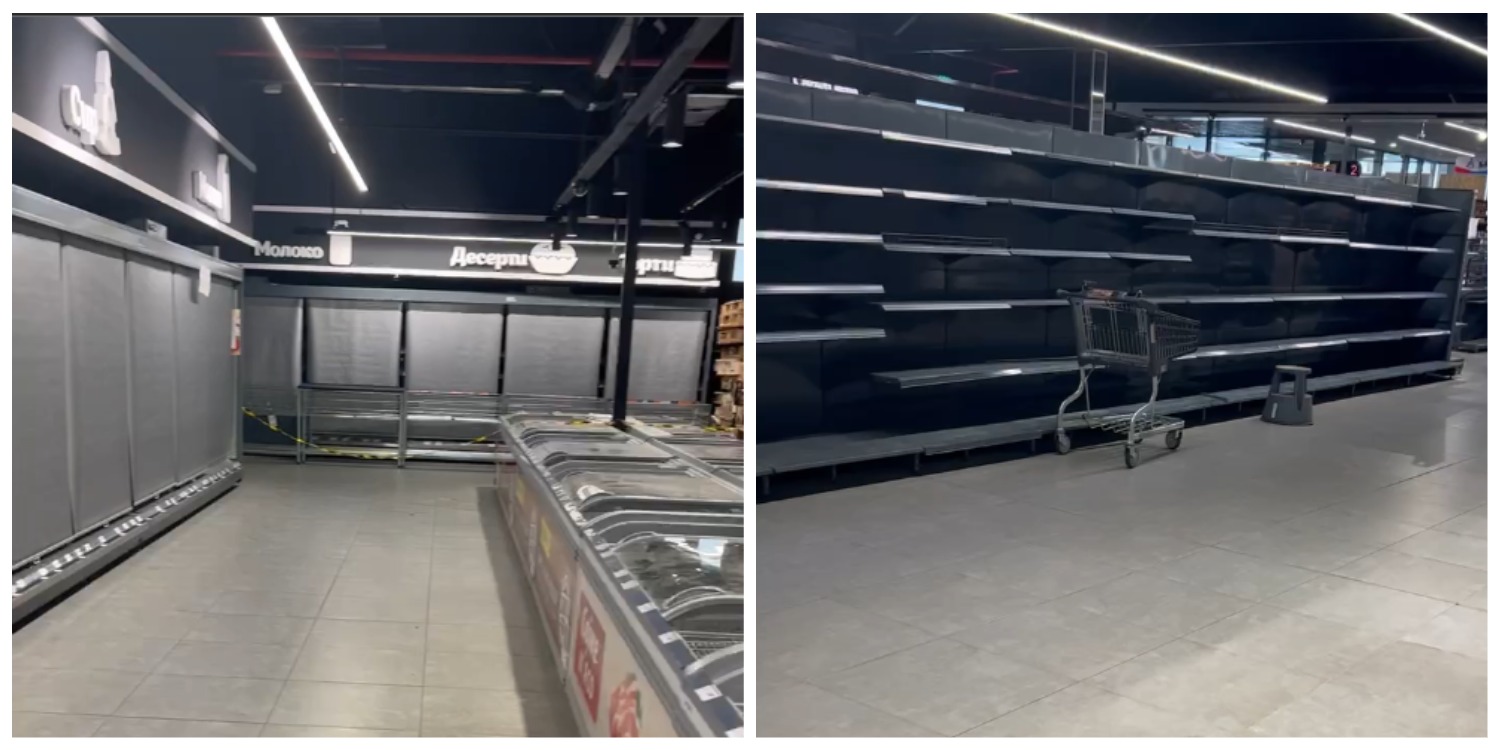
Supermarket in Kherson in April / Screens: from the video provided by "Rubryka's" interlocutor Yulia
"The population doesn't favor them for some reason. At least, I was told that people check packages very thoroughly. Often sellers take our packaging and put russian goods inside to sell it somehow. The problem is that the longer the occupation, the lesser Ukrainian goods remain in the city," says Yevhen.
It has also recently become known that the occupiers are exporting grain from the Kherson region. The same is happening in the occupied parts of the Donetsk, Luhansk, and Zaporizhia regions. In the future, this could turn into an agricultural, food, and economic crisis for Ukraine.
Atrocities take place behind the curtain
Kherson residents are hoping and waiting for de-occupation. But they believe that very little is said about their region in the Ukrainian media space, and somewhere the information is distorted.
"I don't like the term "quiet occupation" because it devalues what the residents are doing in public opposition. Secondly, it also depreciates the armed resistance and the achievements of the armed forces in late February. These are several days of defense of Kherson and Antonovsky Bridge which prevented the advance of the russian army on Mykolaiv and allowed our troops to prepare there. This was very important,"Yevhen emphasizes.
Now people live in terrible conditions in the best Soviet KGB and the modern russian fsb traditions when they can come at any time, and no one will be able to protect anyone..
"There are no mass shootings in the streets, but people do get kidnapped and killed. Unspeakable things are happening. [In the other parts of Ukraine] these brutalities are happening in the streets. в In Kherson, they are happening behind the curtain, so to say, somewhere in the cells. But this doesn't make them less horrific," Yevhen says.
The memes created about Chornobaivka, located northwest of Kherson, also annoy the locals.
"I understand that people need to be proud, to relax, but Chornobaivka being a meme is not as much fun as it seems. Because in Kherson we can hear what happens there. You can't even imagine how many buildings have been destroyed there, at what cost. It is hard to explain that this is not just episode 18 of another TV show. And that there are much more explosions than we can count," says Yulia.
It is hard to explain the fear that the people of Kherson and the region are feeling. That's the locals' opinion. Yulia says that when other regions' residents found out where she came from, they did not understand why she even left and why the road was difficult. Thus, Kherson residents want the region to be talked about louder, more often, and honestly.
"Residents of the region are waiting for their liberation and need comprehensive answers to questions about what happened in the Kherson region and why it became possible. Such misunderstanding raises suspicions that the region has been left behind and forgotten. As for the Kherson region, there were many failures even before the war in communication with people. Now people need to know and feel that they are not forgotten. Especially now, when there are constant problems with the Internet and communication," , says Oleh Baturin.



